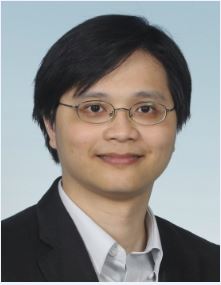IEEE SWISS SSC TALKS (WEBINAR) : Ultra-low Power/Energy Efficient High Accuracy CMOS Temperature Sensors for passive RFID Applications
Dear Members,
We hope all of you are doing well and healthy.
Our Swiss Solid State Circuit Society is please to host a Webinar from Prof. Dr. Man-Kay Law from University Macau.
The Webinar entitled :
Ultra-low Power/Energy Efficient High Accuracy CMOS Temperature Sensors for passive RFID Applications
It will be given over Webex.
https://meetingsemea24.webex.com/meetingsemea24-de/j.php?MTID=mc9f6e97987ba95f430efdf856679ef9a
Please Join at 11:30 mute your headset or microphone.
We make a group picture in the begining for society report.
For the Q&A make sure to have your headset or a proper microphone.
The Agenda is as follow:
11:30 - 11:35 Welcome participants Teleconference set-up
11:35 - 12:20 Lecture By Prof. Dr. Man-Kay Law
12:20 - 12:30 Questions / Discussion
We look forward meeting you and having fruitful discussion.
Kind regards,
Mathieu Coustans for your IEEE Switzerland Solid State Circuit Society committee.
Date and Time
Location
Hosts
Registration
Speakers
 Matthew Law of University of Macau
Matthew Law of University of Macau
Ultra-low Power/Energy Efficient High Accuracy CMOS Temperature Sensors for passive RFID Applications
Ultra-low power/energy efficient wireless sensing microsystems plays an important role in the upcoming internet of things (IoT) era. Temperature is one of the most common physical parameters. Consequently, high performance CMOS temperature sensors become an important design element of many microsystems. Apart from that, temperature compensation for other kinds of sensors is also widely employed due to the intrinsic temperature dependence in many commercially available sensors. Due to the application considerations, these systems are usually miniaturized with limited battery storage, and some (e.g. passive RFID) maybe even battery-less for further production/maintenance cost reduction. Consequently, it is challenging to achieve ultra-low power which can be in the order of μW to even nW, while achieving high accuracy without elaborate calibration efforts. Apart from that, good supply immunity is also necessary to ensure accurate sensing under significant supply noise. This seminar will first review the system level requirements of passive RFID, followed by the introduction of the fundamentals and operating principles of CMOS temperature sensors using different sensing devices. The main sources of inaccuracy will be identified, followed by possible circuit/system level solutions to achieve high power/energy efficiencies. Different case studies of state-of-the-art CMOS temperature sensors will also be introduced.
Biography:
Man-Kay Law (M'11-SM’16) received the B.Sc. degree in computer engineering and the Ph.D. degree in electronic and computer engineering from the Hong Kong University of Science and Technology (HKUST), Hong Kong, in 2006 and 2011, respectively.
In 2011, he joined HKUST as a Visiting Assistant Professor. He is currently an Associate Professor with the State Key Laboratory of Analog and Mixed-Signal VLSI, Institute of Microelectronics, University of Macau, Macau, China. He has authored and coauthored more than 100 technical publications, and holds six U.S./Chinese patents. His research interests are on the development of ultra-low-power CMOS sensing/readout circuits and energy harvesting techniques for wireless and biomedical applications.
Dr. Law is a TPC member of IEEE ISSCC. He was a co-recipient of the ASQED Best Paper Award in 2013, the A-SSCC Distinguished Design Award in 2015, the ASPDAC Best Design Award in 2016, the Macao Science and Technology Invention Award (Second Class) by Macau Government–FDCT in 2014 and 2018. He is a senior member of IEEE, and serves as a technical committee member in IEEE CAS committee on Sensory Systems as well as Biomedical and Life Science Circuits and Systems. He is a distinguished lecturer for IEEE CASS and IEEE SSCS.
Email:
Media
| Presented Slides | 3.46 MiB |


 Add Event to Calendar
Add Event to Calendar